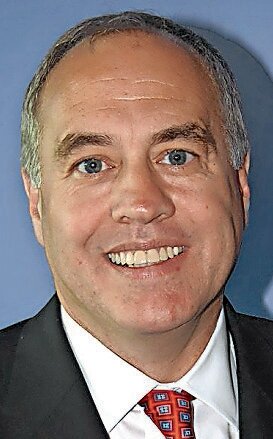N.Y. needs to boost financial education in our schools
Young people in New York have a great knowledge of many subjects, but they have much to learn about personal finance.
Many states have already incorporated financial education into the school curriculum, with some starting lessons as early as kindergarten. Twenty states, including Ohio, Rhode Island, Tennessee, Utah and West Virginia, require that students take a personal finance class to graduate from high school. New York should get with the program.
I issued an executive order on financial literacy in 2019, directing my office to identify ways to enhance New York residents’ personal finance knowledge and understanding of issues such as mortgages, student loans and credit card debt. But we should also be focusing on financial literacy for the next generation, to ensure that young people have the skills to effectively manage their finances and avoid falling into the trap of spiraling debt.
According to a National Endowment for Financial Education 2022 report, 80 percent of those surveyed stated they wished they had been required to take a personal finance class in school. Also, a study by the Financial Industry Regulatory Authority, a nonprofit corporation regulated by the Securities and Exchange Commission, found that respondents with higher financial literacy were more likely to make financial ends meet than people with lower financial know-how.
During last year’s legislative session in Albany, eight bills were introduced to include financial education in schools starting as early as pre-K. One bill called for the creation of a financial literacy fund, which would provide funding for grants or programs to establish financial literacy programs, specifically targeting at-risk populations. These bills merit further discussion.
Several Board of Regents members have voiced support for adding personal finance as a requirement to obtain a high school diploma. I’m encouraged that the issue of personal finance was included in this important discussion, and hope that it will be given serious consideration. Adding financial education to the state’s curriculum can be successfully implemented, as evidenced by the fact that some of our schools already offer a personal finance class.
For example, Mott Hall V, a South Bronx high school, is offering personal finance, taught in conjunction with a required economics course. Students learn theory, and also follow the stock market in real time, research corporate earnings and select stocks. They appreciate the real-world lessons that can be applied in the future.
The importance of learning personal finance can’t be underestimated, and I’m committed to helping New Yorkers strengthen their financial knowledge and understanding.
The stresses associated with financial difficulties can adversely affect your physical and mental health and hurt family members as well. Education in financial literacy can be an important step toward accessing a better job, improving your quality of life, and providing peace of mind.
Let’s make financial acumen part of our kids’ educations.
Thomas DiNapoli is the New York state comptroller. A version of this column originally appeared in amNewYork.






